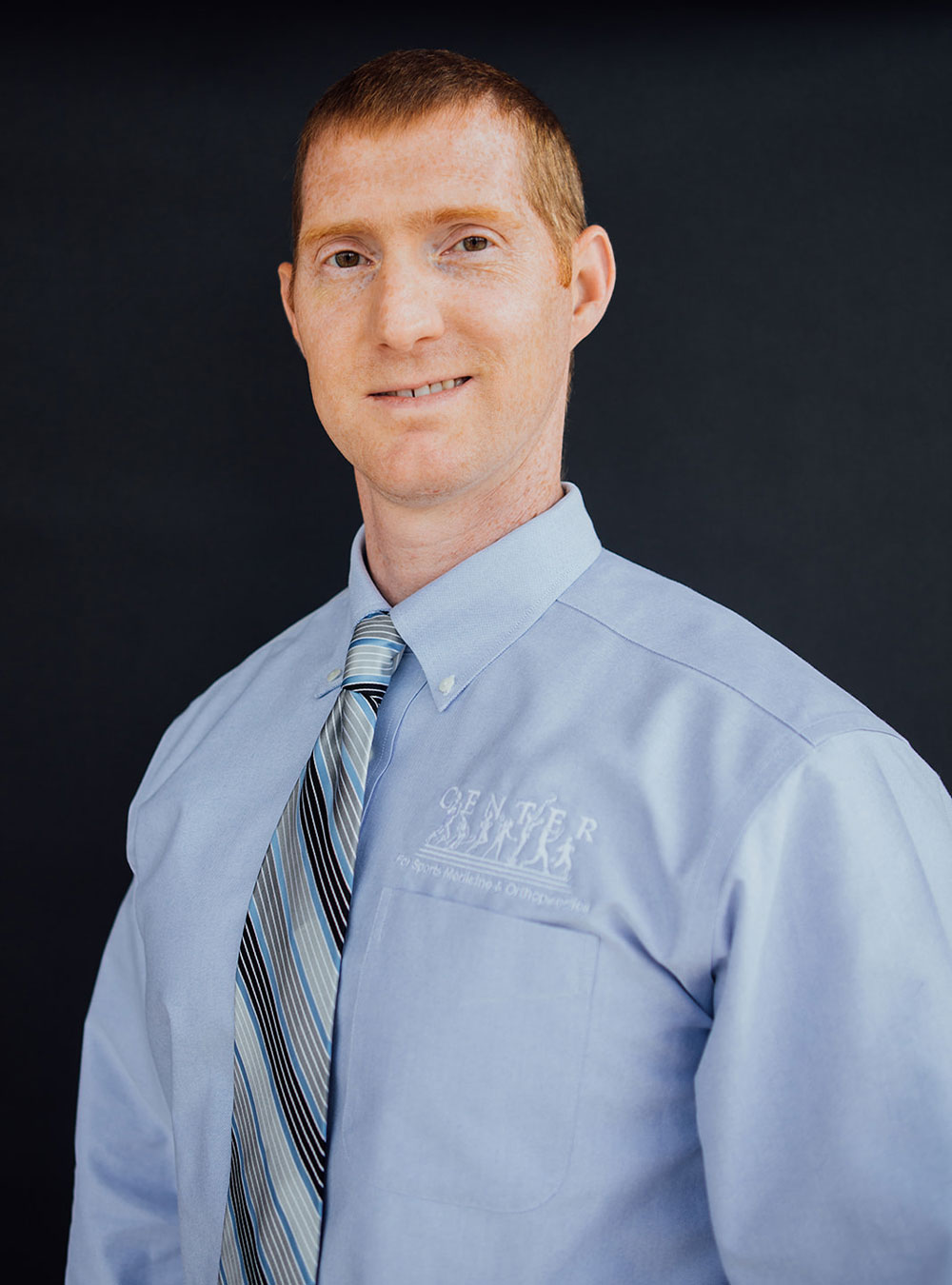Knee Arthroscopy at Center for Sports Medicine and Orthopaedics
Long term knee pain can drastically impact one’s overall quality of life, but relief is achievable with the right care. If you suffer from a knee issue that persists even after non-surgical treatments, you could be a good candidate for knee arthroscopic surgery. Arthroscopy is a minimally-invasive surgery used to assess and often treat a variety of joint issues, specifically those pertaining to the knee.
What is Knee Arthroscopy?
Knee arthroscopy, the most common arthroscopic procedure, is a minimally-invasive surgery, often referred to as keyhole surgery, where your orthopaedic surgeon accesses and views the injured hip joint and its surrounding structures with a pen-sized instrument called an arthroscope. This specialized tool also features a tiny camera that, when inserted into the joint through a series of small incisions, projects images from inside the joint onto a large monitor. Your surgeon will then assess damage to the knee joint, and potentially even repair the problem on the spot.
What knee issues can be treated with this procedure?
Knee arthroscopy may be recommended as a treatment option for pain that does not respond to other non-surgical treatment methods. Common knee issues that might be treated with this procedure include:
- Torn Meniscus
- Torn Anterior Cruciate (ACL)
- Torn Posterior Cruciate (PCL)
- Torn Articular Cartilage
- Inflamed Synovial Tissue
- Issues from Rheumatoid Arthritis
- Misaligned Patella
- Baker’s Cysts
- Arthritis
- And more
If you suffer from any of these painful conditions, you might be a good candidate for knee arthroscopy.
Benefits of Arthroscopic Knee Surgery
When it comes to surgery, the less invasive the procedure, the better. That’s why arthroscopic surgery is a good course of action for ongoing joint problems. Arthroscopy has benefits that make it a good option for patients, primarily the fact that it’s an outpatient procedure. Other benefits include less risk of complications during surgery and generally less postoperative pain. Recovery after the surgery is also less intensive and less time consuming than many other types of surgical treatment. That means you can return to your regular activities much more quickly.
What to Expect for the Procedure
If your orthopaedic surgeon recommends arthroscopic surgery, it might ease your mind to have a basic understanding of the process. Right before your surgery, general anesthesia will be administered, so you’ll be completely under during the actual procedure. The surgery itself usually takes one to two hours to complete depending on the extent of the damage. When your surgeon completes the arthroscopic procedure, surgical instruments will be removed from the joint and the small incisions made will be closed with dissolvable stitches.
Immediately following your surgery, you’ll be transferred to a recovery room for monitoring. Since the procedure is outpatient, you’ll be discharged that same day to recover in the comfort of your own home. It will also be important to have someone there with you to drive you home and help you get around for the first few days.
Postoperative Care & Recovery
Postoperative care and rehabilitation is an important part of your recovery, and can play a big role in the overall success of your knee arthroscopy. Post-procedure physical therapy and in-home exercises help to prevent the formation of excess scar tissue and eliminate stiffness in the knee as it heals.
Your surgeon will help determine a plan for physical therapy specific to you and your body, and your progress will be closely monitored by your physical therapy team and surgeon. Every patient is different, but most are able to return to normal recreational activities as soon as three or four months after their arthroscopic surgery.
Work with CSMO
Is persistent knee pain affecting your daily life? If so, our expert team of orthopaedic surgeons is here to help you with a custom treatment plan tailored to your exact needs. Get in touch now!




















